Microbiology & Virology
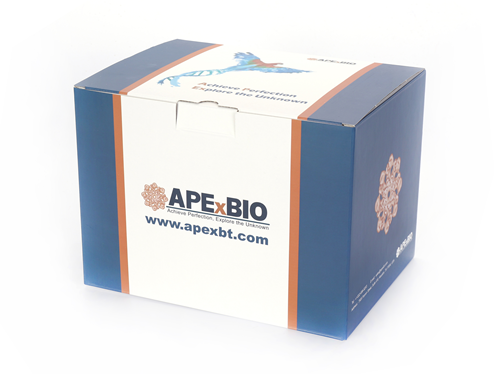
Virology
A virus is a small infectious agent that replicates inside living cells. Viruses cause many human diseases from small illnesses, like influenza, to more deadly diseases, like hepatitis B and HIV. Our body’s immune system defends against viral infection by generating specific antibodies to bind to and neutralize viral particles and by cell mediated immunity that destroys infected host cells. read more
-
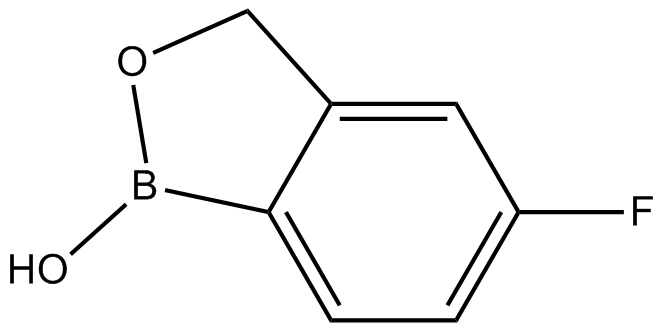 A3177 AN-26901 CitationTarget: AntifungalSummary: Antifungal agent
A3177 AN-26901 CitationTarget: AntifungalSummary: Antifungal agent -
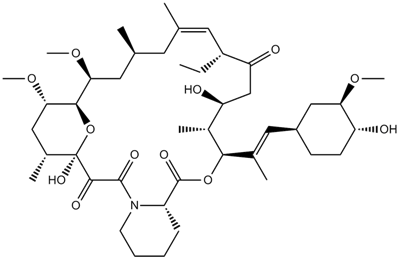 A3191 Ascomycin(FK 520)Target: phosphatasesSummary: Macrolide immunosuppressant,FK-520 analog
A3191 Ascomycin(FK 520)Target: phosphatasesSummary: Macrolide immunosuppressant,FK-520 analog -
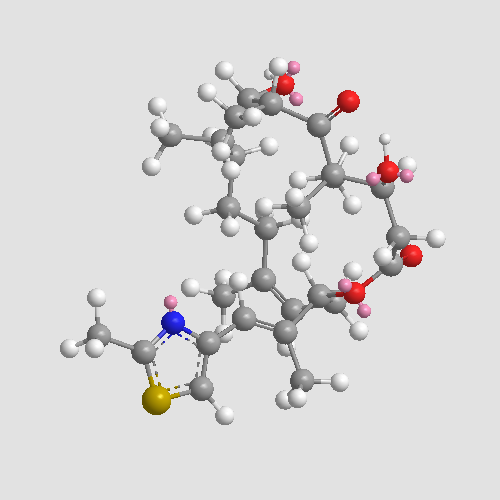 A3394 Epothilone DTarget: Microtubule/TubulinSummary: Natural polyketide compound
A3394 Epothilone DTarget: Microtubule/TubulinSummary: Natural polyketide compound -
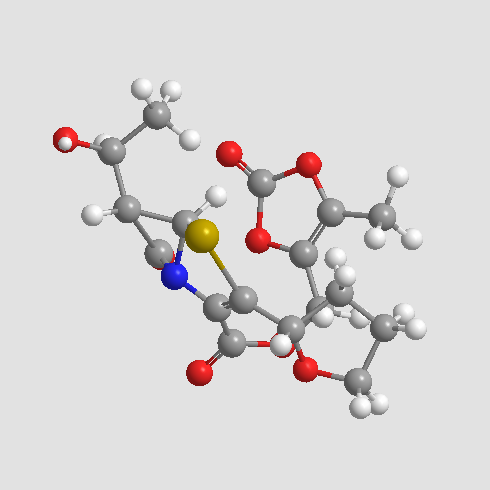 A3411 Faropenem daloxateSummary: Oral penem,beta-lactam antibiotic
A3411 Faropenem daloxateSummary: Oral penem,beta-lactam antibiotic -
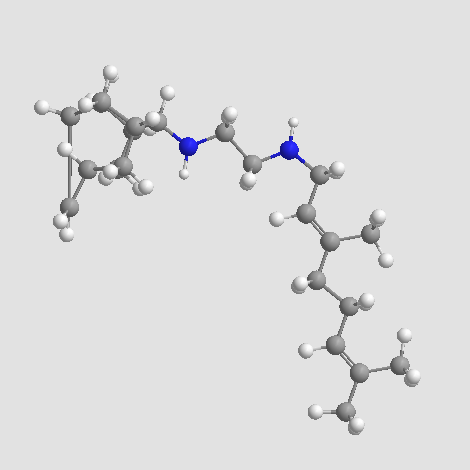 A3834 SQ1091 CitationSummary: Antibiotic for treatment of pulmonary TB
A3834 SQ1091 CitationSummary: Antibiotic for treatment of pulmonary TB -
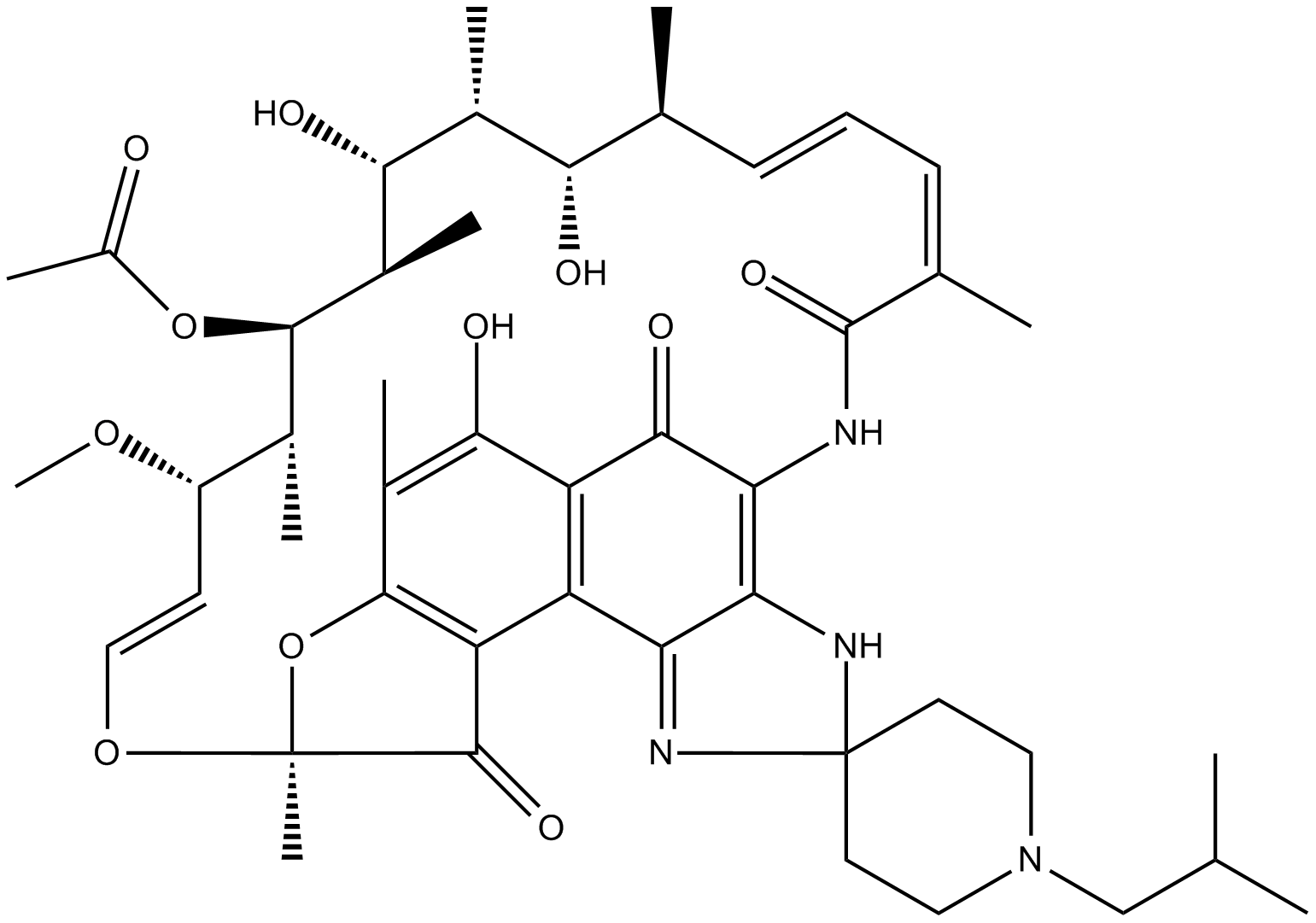 B2126 RifabutinTarget: Cytochrome P450 (CYP450)Summary: anti-TB(tuberculosis) medicine
B2126 RifabutinTarget: Cytochrome P450 (CYP450)Summary: anti-TB(tuberculosis) medicine -
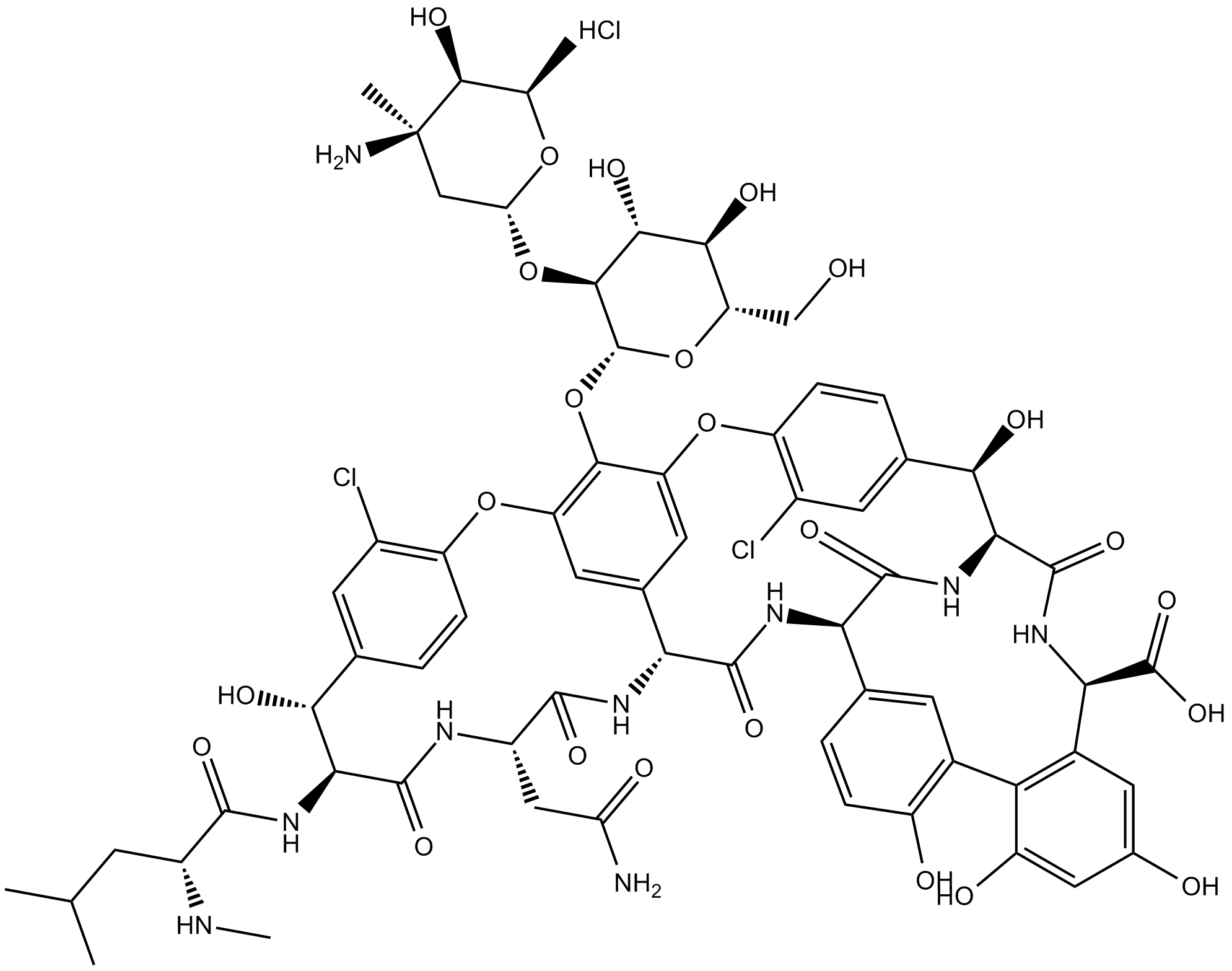 B1223 Vancomycin hydrochlorideTarget: AntibioticSummary: Narrow-spectrum glycopeptide antibacterial agent
B1223 Vancomycin hydrochlorideTarget: AntibioticSummary: Narrow-spectrum glycopeptide antibacterial agent -
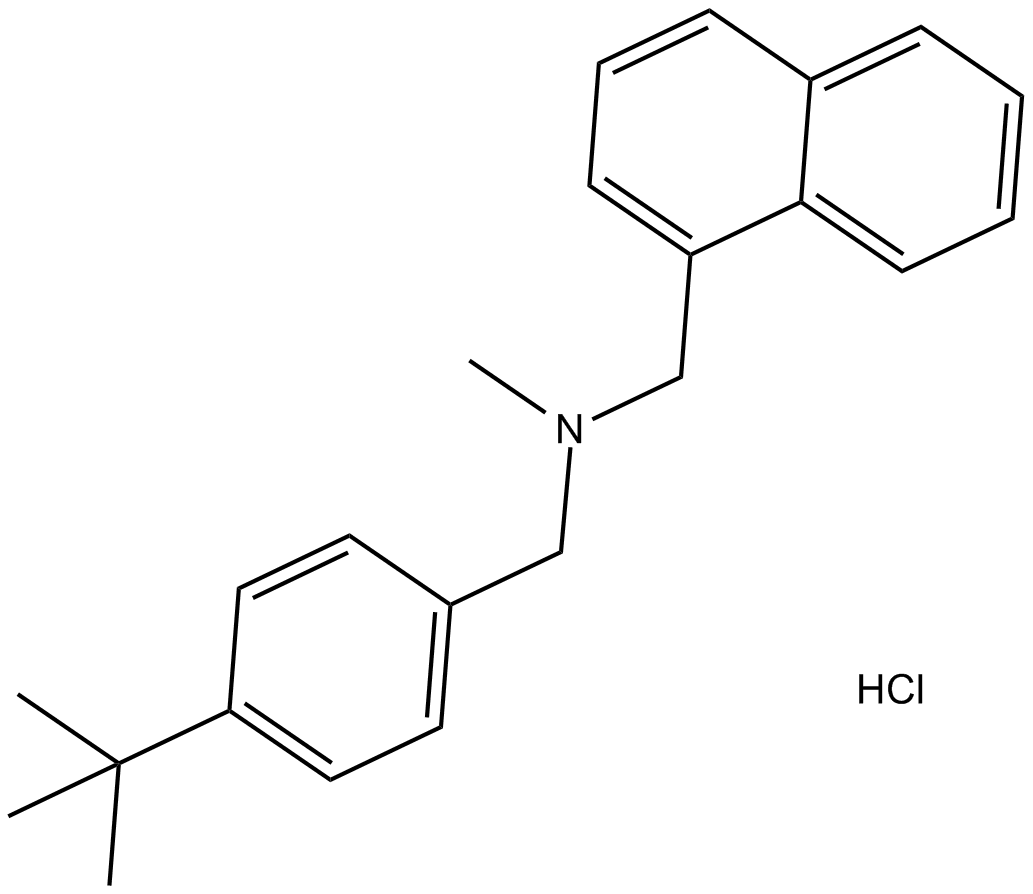 B1901 Butenafine HClTarget: Squalene epoxidasesSummary: synthetic benzylamine antifungal
B1901 Butenafine HClTarget: Squalene epoxidasesSummary: synthetic benzylamine antifungal -
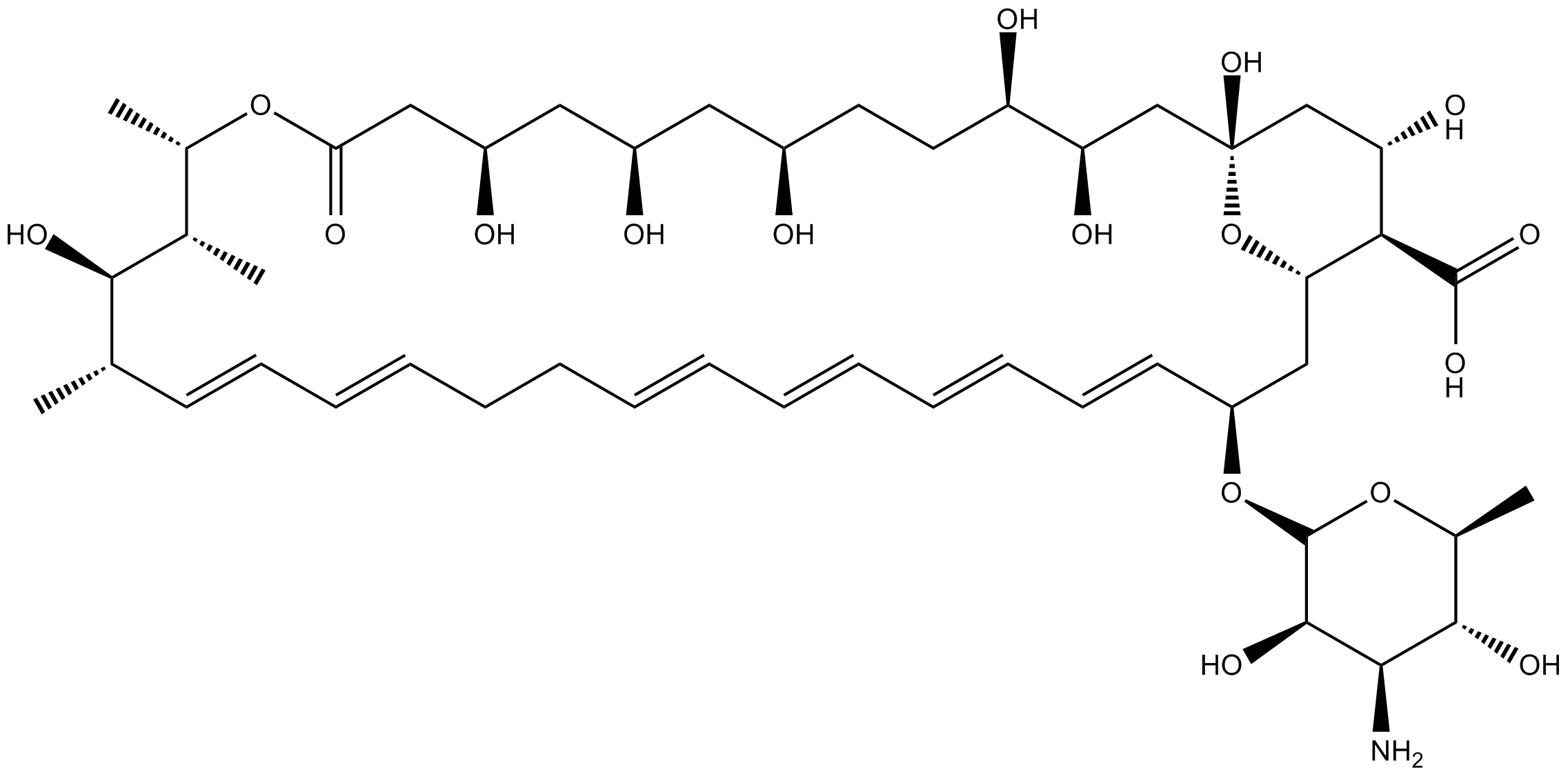 B1993 Nystatin (Fungicidin)1 CitationTarget: AntifungalSummary: antifungal antibiotic
B1993 Nystatin (Fungicidin)1 CitationTarget: AntifungalSummary: antifungal antibiotic -
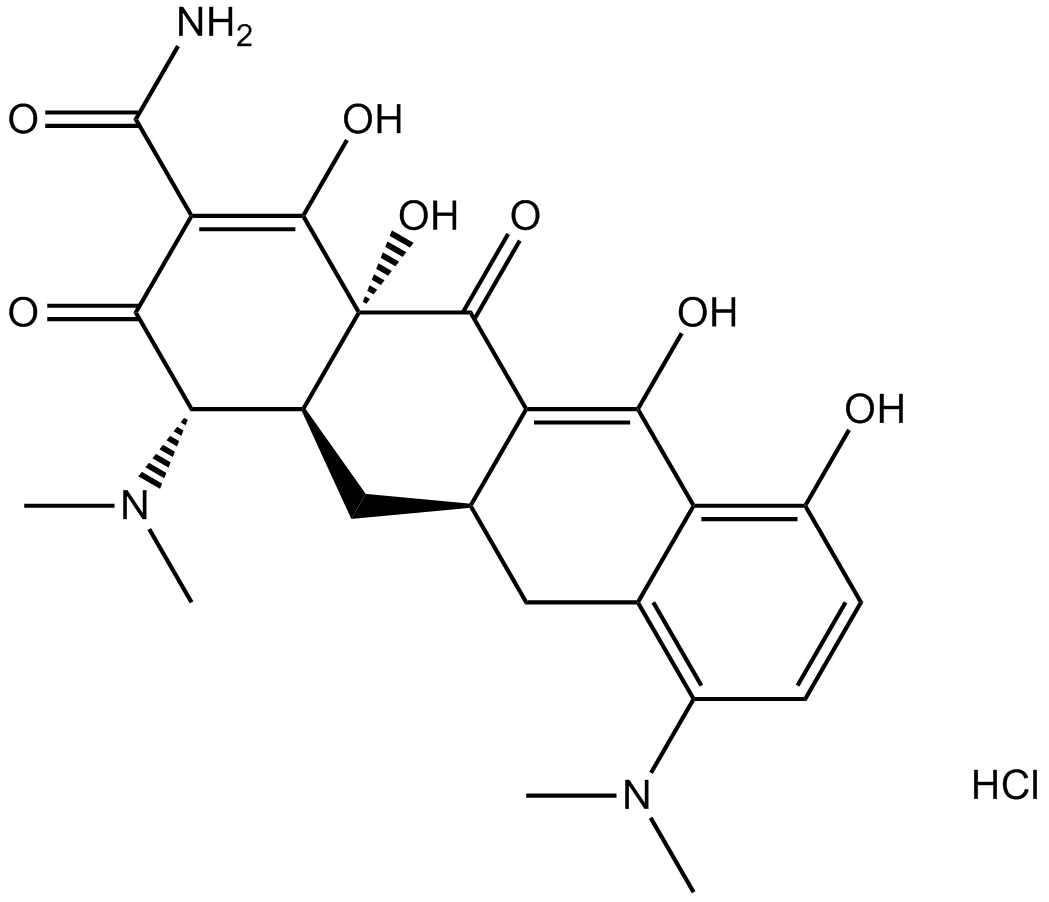 B1791 Minocycline HClTarget: AntibioticSummary: Tetracycline antibiotic
B1791 Minocycline HClTarget: AntibioticSummary: Tetracycline antibiotic

